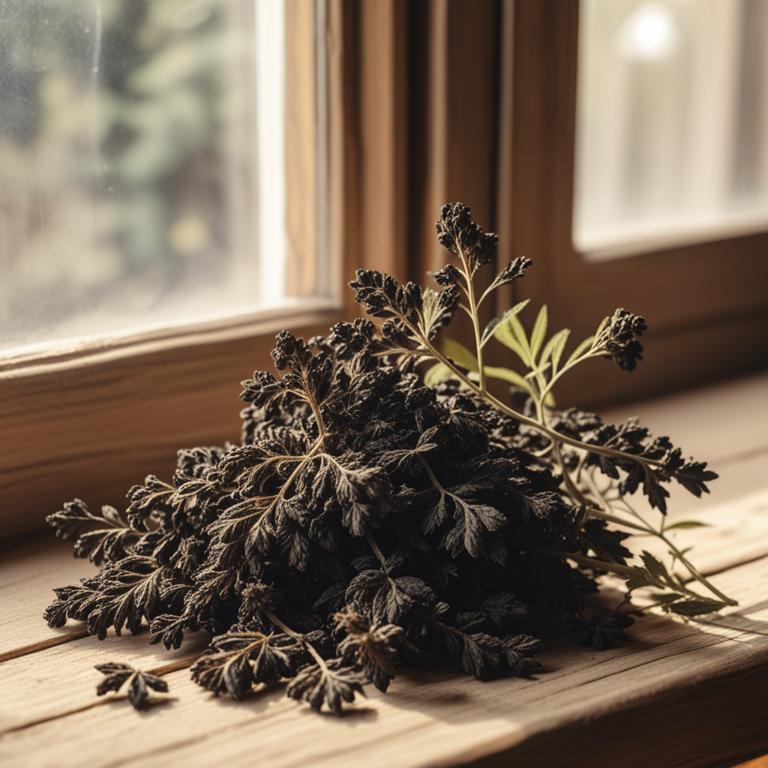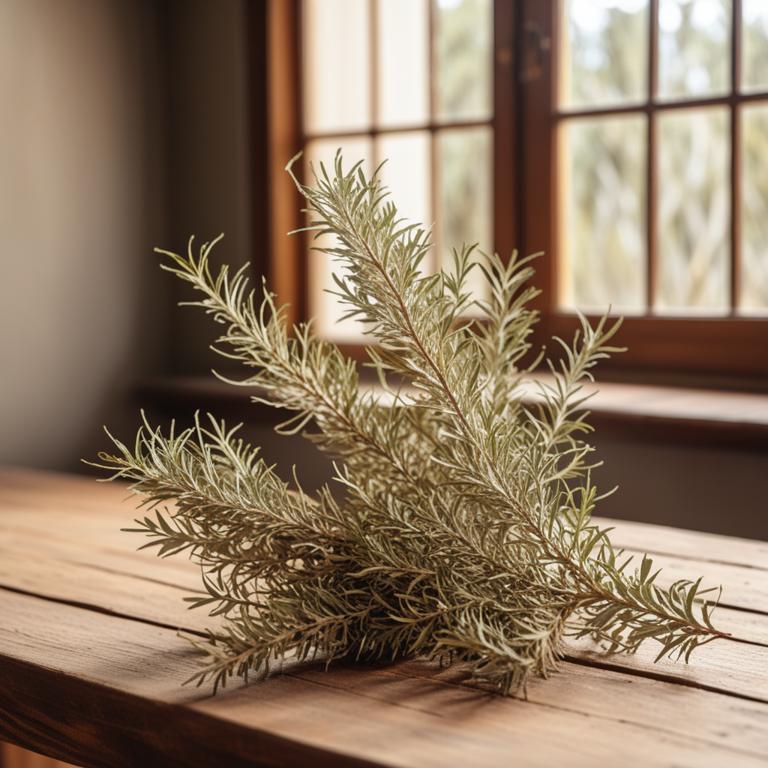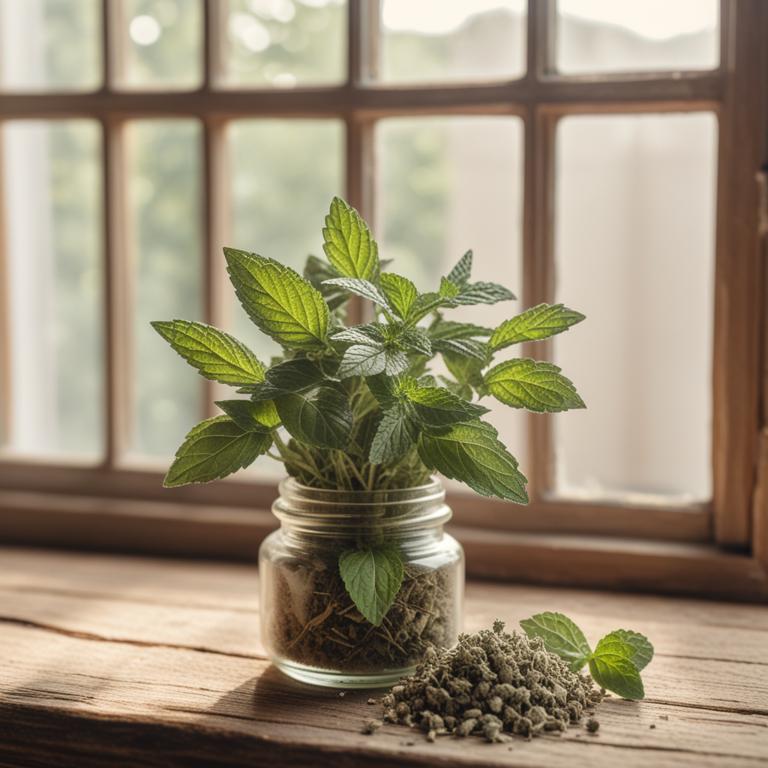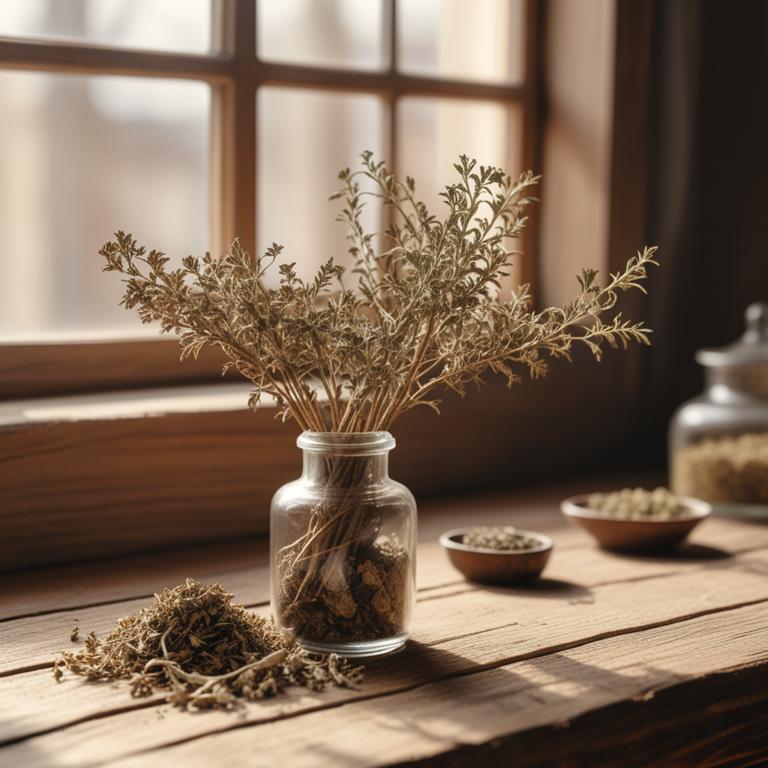Updated: Dec 1, 2024
Causes, Medicinal Herbs, and Herbal Remedies for Shortness of Breath
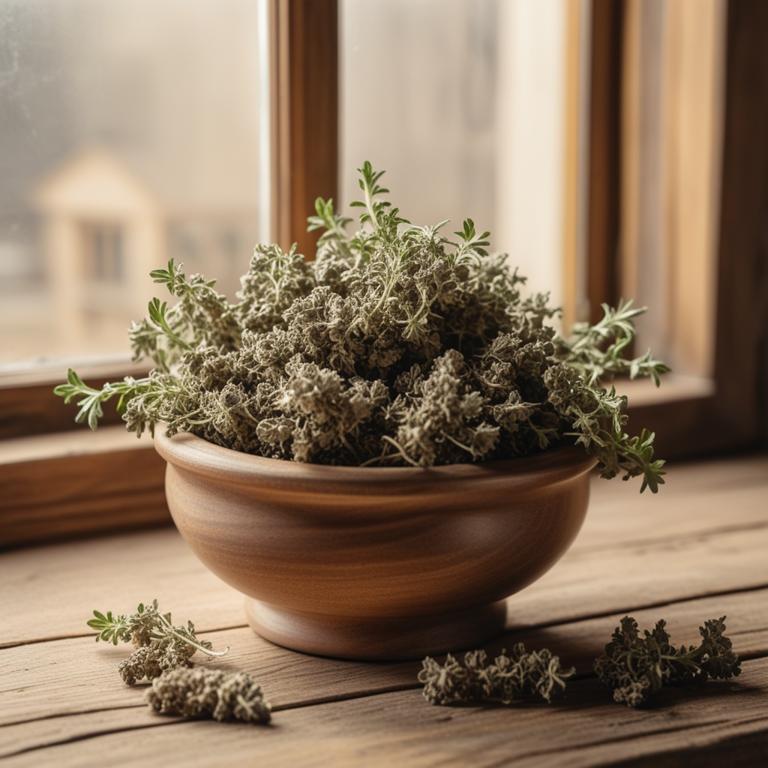
Shortness of breath, also known as dyspnea, can be a frustrating and debilitating condition that makes everyday activities feel like climbing a mountain.
It's when you feel like you can't catch your breath, even when you're sitting still or doing light exercises. This can be caused by various factors, such as respiratory problems like asthma or chronic obstructive pulmonary disease (COPD), heart conditions, anemia, or even anxiety or panic attacks. Some people may experience shortness of breath due to environmental factors like pollution or high altitude. Certain herbal remedies have been used for centuries to help alleviate shortness of breath. For example, thyme and eucalyptus are known for their decongestant properties, which can help clear out mucus and improve breathing.
Ginger, on the other hand, has anti-inflammatory properties that may help reduce swelling in the airways. Licorice root and marshmallow root are also used to soothe and protect the mucous membranes in the lungs. Herbal teas are a popular way to incorporate these remedies into your daily routine. You can brew thyme and eucalyptus leaves together to make a soothing tea that can help ease congestion. Ginger tea can be made by steeping fresh ginger root in hot water, and licorice root tea can be prepared by steeping dried licorice root in hot water. Some herbal supplements, like thyme extract or ginger capsules, can also be taken to support respiratory health.
However, it's essential to consult with a healthcare professional before starting any new herbal remedies, especially if you have underlying medical conditions or take medications.
Table of Contents
- What leads to shortness of breath?
- What benefits can be gained from using herbs to relieve shortness of breath?
- What are the primary medicinal herbs for treating and managing shortness of breath?
- What are the most effective herbal remedies for shortness of breath?
- Which herbs might be problematic for individuals with shortness of breath?
- FAQ
What leads to shortness of breath?
The main causes of shortness of breath are a combination of respiratory and heart conditions that affect the body's ability to take in oxygen.
One of the main causes is Chronic Bronchitis, a condition where the airways in the lungs become inflamed and irritated, making it difficult to breathe. This condition is often caused by smoking and long-term exposure to pollutants, which can damage the lining of the airways and reduce lung function. Pulmonary Fibrosis is another cause of shortness of breath, where the lungs become scarred and damaged, making it hard for oxygen to pass through. This condition can be caused by inhaling pollutants, such as asbestos, or by an autoimmune disease that attacks the lungs.
As a result, the lungs become stiff and less efficient at taking in oxygen, leading to shortness of breath. Heart Failure is also a major cause of shortness of breath, where the heart is unable to pump enough blood to meet the body's needs. This can cause fluid buildup in the lungs, making it harder to breathe. Heart failure can be caused by high blood pressure, coronary artery disease, or other conditions that damage the heart. Lastly, Chronic Obstructive Pulmonary Disease (COPD) is a common cause of shortness of breath, where the airways in the lungs become narrowed and obstructed, making it difficult to breathe.
This condition is often caused by long-term smoking or exposure to pollutants, which can damage the airways and reduce lung function.
What benefits can be gained from using herbs to relieve shortness of breath?
Using certain plants to help with shortness of breath can be really helpful.
These plants can make breathing easier by opening up airways in the lungs and helping to relax the muscles that control breathing. This can make it easier to take deep breaths and fill the lungs with air.
Some of these plants can also help to reduce inflammation in the airways, which can be a major contributor to shortness of breath. Additionally, they may help to improve the body's ability to use oxygen, which can be especially beneficial for people who have conditions like asthma or chronic obstructive pulmonary disease (COPD).
By reducing inflammation and improving oxygen use, these plants can help to reduce symptoms of shortness of breath and make it easier to engage in daily activities.
What are the primary medicinal herbs for treating and managing shortness of breath?

When it comes to shortness of breath, herbs can be a natural and effective way to help alleviate symptoms.
Eucalyptus globulus, also known as eucalyptus oil, is a popular herb used to relieve respiratory issues. Its decongestant properties help loosen mucus and open up airways, making it easier to breathe. Echinacea purpurea, a type of flowering plant, has anti-inflammatory properties that can help reduce swelling in the lungs and airways, making it easier to breathe. It also has antioxidant properties that can help protect the body from damage caused by free radicals. Ginger, or Zingiber officinale, is a well-known herb used to treat nausea and digestive issues, but it can also help relieve respiratory problems.
Its anti-inflammatory properties can help reduce inflammation in the lungs and airways, making it easier to breathe. Licorice root, or Glycyrrhiza glabra, has anti-inflammatory properties that can help reduce inflammation in the lungs and airways, making it easier to breathe. It also has expectorant properties that can help loosen mucus and make it easier to cough up. Rosemary, or Rosmarinus officinalis, is a fragrant herb that can help improve circulation and relieve respiratory issues. Its anti-inflammatory properties can help reduce inflammation in the lungs and airways, making it easier to breathe. These herbs can be consumed in various forms, such as teas, capsules, or essential oils, and can be used in combination with each other to provide relief from shortness of breath.
However, it's essential to consult with a healthcare professional before using any herbal remedies, especially if you have any underlying medical conditions or are taking medication.
What are the most effective herbal remedies for shortness of breath?
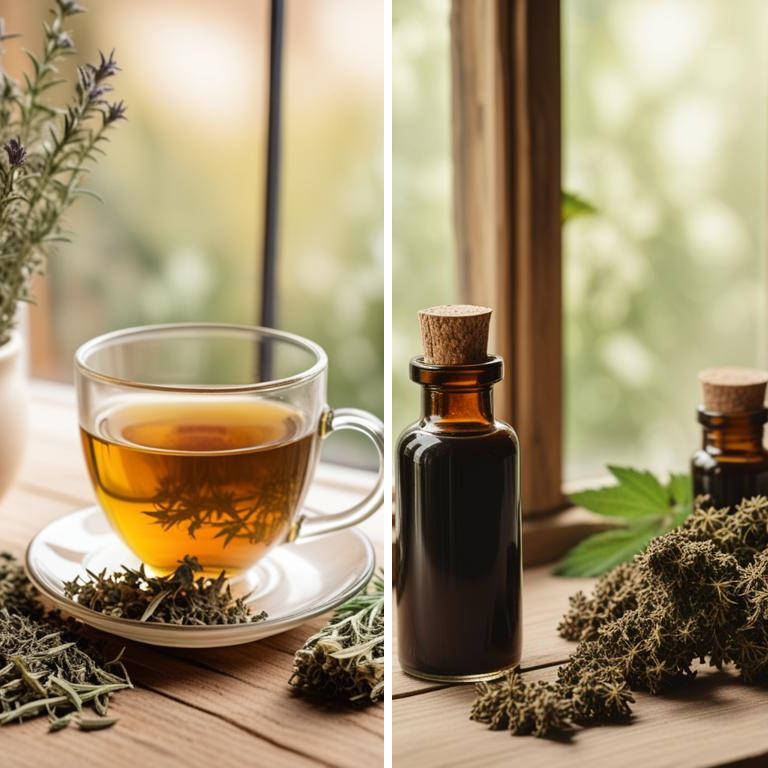
If you're experiencing shortness of breath, herbal preparations can be a helpful addition to your treatment.
One way to use these herbs is through a decoction, which involves boiling the herbs in water to release their active ingredients. Decoctions are particularly useful for roots and bark, as these parts of the plant are often too dense to infuse properly. Ginger and licorice root are examples of herbs that work well in a decoction. They help to ease congestion and inflammation in the airways, making it easier to breathe. Another way to use herbs is by making a tea, which is similar to a decoction but uses less water and a shorter cooking time. Teas are great for flowers and leaves, as these parts of the plant infuse easily and quickly. Peppermint and eucalyptus are popular herbs for teas, as they help to clear the airways and reduce inflammation. Infusions are similar to teas, but they use cold water instead of hot water.
This makes them a great choice for delicate herbs that might be damaged by heat. Chamomile and lemon balm are examples of herbs that work well in an infusion. They help to calm the body and mind, reducing stress and anxiety that can exacerbate shortness of breath. Herbal tinctures are concentrated extracts of the herbs, made by soaking the herbs in a solvent like alcohol or glycerin. Tinctures are great for herbs that are difficult to infuse or decoct, like ginseng and ashwagandha. They can be taken sublingually (under the tongue) for quick absorption, or added to water or tea for a more gentle effect. Finally, herbal elixirs are sweetened, flavored extracts of the herbs, often made with a combination of herbs and other ingredients. Elixirs are great for herbs like hawthorn and passionflower, which have a more subtle effect on the body.
They can be taken as a tonic to support overall health and well-being, and may help to reduce shortness of breath.
Additional Resources:
Which herbs might be problematic for individuals with shortness of breath?
If you experience shortness of breath, it's a good idea to avoid Valeriana officinalis, also known as valerian root.
This herb can cause your breathing to slow down even further, making it harder to breathe. Valerian root has a sedative effect on the body, so it's not suitable for people who already struggle to catch their breath. Thymus serpyllum, or wild thyme, can also be a problem. Although it's typically used for respiratory issues like coughs, it can stimulate the airways and make breathing more difficult for people who already have shortness of breath. This is especially true if you're taking other medications for respiratory problems. Hyptis suaveolens, a herb that's sometimes used to treat respiratory issues, can cause allergic reactions in some people.
This can lead to increased mucus production, making it harder to breathe. If you already have shortness of breath, an allergic reaction can make things even more challenging. Ginkgo biloba is a well-known herb that's often used to improve circulation and memory. However, it can lower blood pressure, which is not good for people with shortness of breath. When your blood pressure drops, your heart has to work harder to pump blood through your body, which can make it even harder to breathe. Piper nigrum, also known as black pepper, is often used to improve digestion. However, it can cause an increase in heart rate, which is not suitable for people who already experience shortness of breath.
When your heart beats faster, it can put extra pressure on your lungs, making it harder to breathe.
FAQ
Are there any specific herbs that can prevent shortness of breath?
Some herbs like ginger and ginseng may help ease shortness of breath by reducing inflammation and improving circulation.
Ginger has natural anti-inflammatory properties, while ginseng is believed to increase oxygen levels in the body.
These herbs can be consumed as tea or added to food for potential benefits.
Is it safe to use herbal remedies for shortness of breath during pregnancy?
When pregnant, it's best to be cautious with herbal remedies, especially if you're experiencing shortness of breath.
Some herbs can affect blood pressure or interact with other pregnancy medications. If you're considering using herbal remedies, research the ingredients and potential risks.
Be sure to check if they're safe during pregnancy and follow the recommended dosage.
Are there any herbs that can reduce the frequency of shortness of breath?
Some herbs like ginger and turmeric may help reduce shortness of breath.
They contain compounds that help relax airways and improve breathing. Ginger's anti-inflammatory properties can also ease congestion, while turmeric's curcumin may reduce swelling in the lungs.
These herbs are sometimes used to support breathing, but more research is needed to confirm their effectiveness.
Can i combine different herbal remedies for shortness of breath?
Combining herbal remedies for shortness of breath can be tricky.
Some herbs, like ginseng and licorice root, can raise blood pressure, which might worsen shortness of breath. Others, like hawthorn and passionflower, can slow down breathing, which might help.
However, their effects can interact with each other, so use caution and start with small amounts.
Related Articles

The Dry Nose Dilemma: Causes, Herbal Preparations, and More
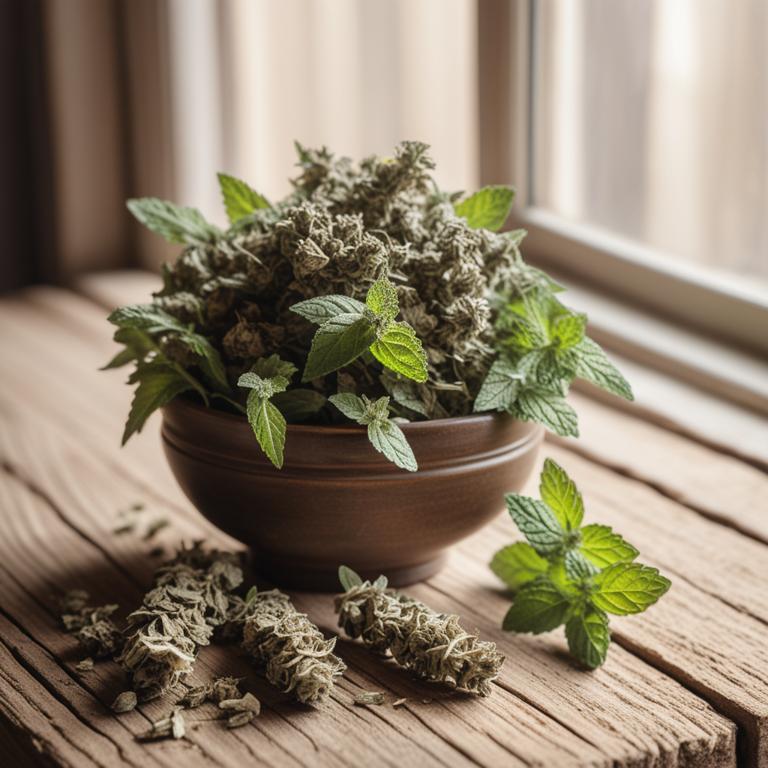
Blocked Nose: Causes, Prevention, and Medicinal Herbs for Relief

Runny Nose Causes and Herbal Preparations: A Comprehensive Guide

Snoring: Causes, Herbal Remedies, and a Good Night's Sleep
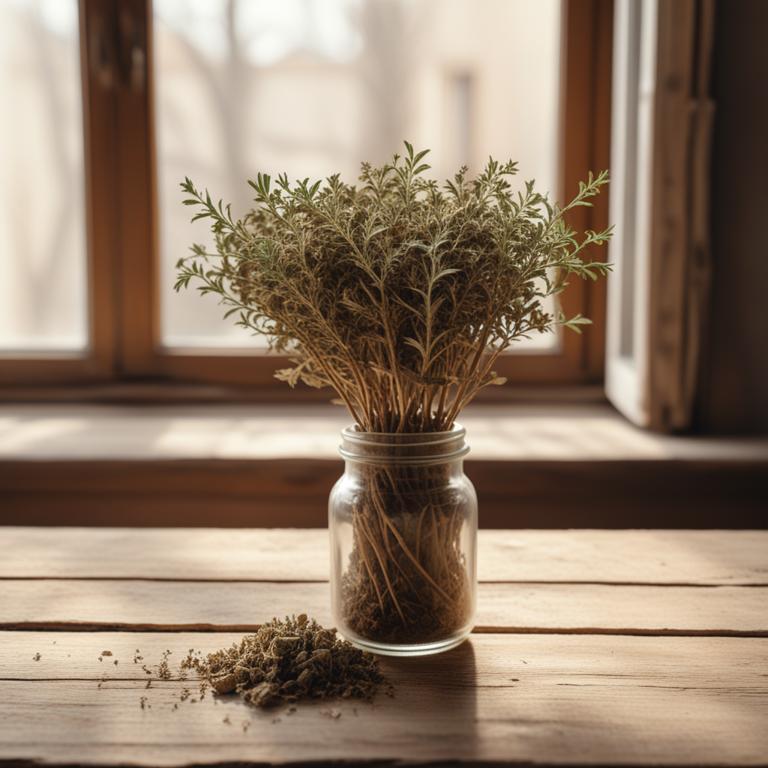
Banish Dry Throat: Exploring Medicinal Herbs and Herbal Preparations for a Soothing Solution
